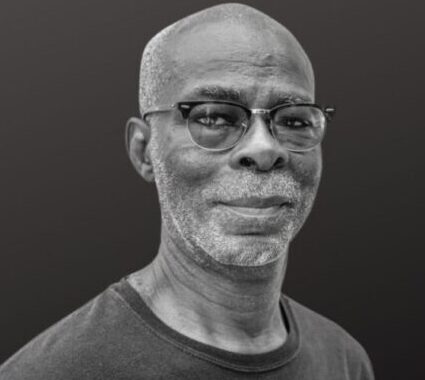
Nigeria is broken, not broke
It was painful for me to see Nuhu Ribadu, who is National Security Adviser to President Bola Tinubu, declaring Nigeria to be broke.
But there he was, one month ago at the Chief of Defence Intelligence Annual Conference in Abuja, declaring that the current administration inherited a bankrupt country from its predecessor, the Muhammadu Buhari outfit.
“Yes, we’re facing budgetary constraints,” said Mr. Ribadu, who became internationally-famous as the pioneer head of Nigeria’s EFCC.
“It Is important for you to know that we have inherited a very difficult situation, literally a bankrupt country, no money, to a point where we can say that all the money we’re getting now, we’re paying back what was taken,” he said.
It is not a point that his principal has addressed or is likely to. To do so would be to confirm what Nigerians have always known: that although he did not start the rot, Mr Buhari had Nigeria’s worst government in history. As members of the ruling APC, it would also mean having to accept not just responsibility for the shortcomings of their predecessor, but the argument that they are no different.
To that end, it was curious that Ribadu chose for his speech, the words “bankrupt” and “budgetary constraints.”
Yes, Buhari was weak and reckless in matters fiscal or financial. But that was simply symptomatic: the bankruptcy of Buhari’s eight years was in the broader area of corruption and lack of leadership, which is at the heart of Ribadu’s curriculum vitae.
For a man who got votes across the country for swearing that he was the one to kill corruption in Nigeria, Buhari liberally offered oxygen to the menace. The Tinubu government has not started well, either: it has chosen to prioritize the same greed, self-centredness, and nepotism by which Buhari buried his pretensions to patriotism.
This places in context Ribadu’s claims about the character of the Tinubu administration, which, in his words, will not “rest on its oars” in ensuring a robust and viable defence management and security apparatus” in the country.
What oars?
Testifying at the Subcommittee On Africa, Global Human Rights And International Operations of the Committee On International Relations of the United States House Of Representatives in May 2006, Mr. Ribadu had been brutally honest. He located the history of corruption in Nigeria in the country’s 29 years of military rule since 1960.
“Successive military regimes subdued the rule of law, facilitated the wanton looting of the public treasury, decapitated public institutions and free speech and instituted a secret and opaque culture in the running of government business,” he said. “The result was total insecurity, poor economic mismanagement, abuse of human rights, ethnic conflicts, and capital flight.”
He then situated the EFCC, as set up by President Olusegun Obasanjo in 2003, in the broader context of the National Economic Empowerment Development Strategy (NEEDS), the vastly-hyped economic reform.
Ribadu described the EFCC as being in the forefront of sanitizing and cleaning key government agencies, and spoke of a “change of obligations” in such agencies as the police, the customs, the Ministry of Justice, and others.
Of this “new” direction, he said: “We believe that unless we start bringing people to justice, unless we start showing that there is rule of law, order, unless we start bringing the bad people who are responsible for the bad things that happen in the country, those who brought disrepute, abominate [sic]…Unless we bring them to justice, there is no way, no chance for us to really move forward. Nobody will believe whatever step or intent we mean to take.”
He spoke about loot recovery. “We have…recovered well over $5 billion, money that ordinarily would have gone down the drains.,” of “excellent working relationship with law enforcement agencies all over the world,” particularly the FBI, but also about serious challenges to the continued successful prosecution of the war on corruption in Nigeria.”
He identified some of them as the relatively slow judicial system, the technological complexities in fighting economic crimes in cyberspace, lack of capacity and investigation tools, such as analysis.”
He also decried the availability of safe havens for corrupt Nigerian officials abroad to keep their loot.
“And this is probably one of the biggest problems that is faced in fighting corruption, not just Nigeria but indeed African countries. Most of this grand corruption that does take place in the country does go out, 80 per cent of it.”
Ribadu concluded by drawing the attention of the US Congress to the “grievous harm” corruption has inflicted on Nigeria and Africa.
“Corruption is the reason there has been a perpetual collapse of structures and institutions,” he said. “It is the cause of the endemic poverty in Africa. It is the reason for the underdevelopment and the cyclical failure of democracy to take root in Africa.”
He recommended that corrupt public officials should receive the same treatment as terrorists.
“If you see what is happening in Africa, in the last few years alone, I can assure you we have lost well over two million people simply because of the mismanagement, simply because of the way our leaders handle their own countries…directly primitive, crude corruption…”
Ribadu made those remarks 17 years ago. The world loved him. Then-UNODC Executive Director Director Antonio Costa called him “a crime-buster made of the hardest steel alloy every manufactured.”
Seeing the video in which he now describes Nigeria as “bankrupt,” I understand that pain on his face: he knows exactly how we got here.
That is why there are no oars to speak of resting on. The Tinubu regime is an outshoot of Buhari’s and is already known to be littered with the worst of our charlatans and the deepest of cynicism.
That is why it is wishful thinking simply for Ribadu to promise “a robust and viable defence management and security apparatus,” when all we do is prospect for loans, and resources are being devoured by officials and relatives. In what other country, for instance, does the leadership consistently budget to enhance its lifestyle and even pay the private hotel bills of the president’s daughter and her guests?
My point is that Nigeria is broken, not broke. If Ribadu’s head is still in the right place, this is his chance to bring his heart there as well. But he will never succeed as NSA if his head in combating the malfeasance of Nigeria is left back in 2006.


